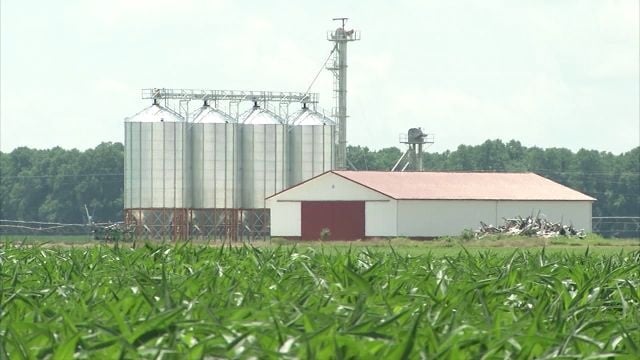USDA awards UMES with grant set to benefit farmers

Giving folks below the poverty line the tools they need to make money farming. That’s what a new grant at the University of Maryland Eastern Shore is aiming to do, but that’s not that only benefit.
Farming, even in the fertile soil of Delmarva, isn’t easy. But of course it can be done if you know how. And that know-how is exactly what a new project at UMES is all about. Giving folks on the Lower Shore the training they need to learn how to raise crops or livestock, and how to actually make a buck doing it.
47 ABC spoke with Berran Rogers, Small Farm Program Coordinator at UMES and he says, “This particular grant project was a fit for us because we’re always looking for ways in which we can improve the economic viability of our farmers here in the area.”
Rogers is also part of the grant project’s leadership team. He says the USDA grant, worth over $170,000, targets folks in Somerset, Wicomico, Accomack, and Dorchester counties, where a higher percentage of people live below the poverty line, but it’s not exclusive.
Rogers tells 47 ABC, “Even though this project is targeting trying to reach out to those social disadvantaged groups we pretty much welcome all farmers so anyone who’s interested in receiving assistance and they will get it from us.”
Learning to farm is one thing, learning to sell is another, and that’s all part of the project.
Rogers tells 47 ABC, “Our farmers are really good at producing crops but sometimes they don’t wear that business and market cap.”
Rich Evanusa wears that cap well. He has been running Beach to Bay Seafood in Princess Anne for 35 years. He says the grant could benefit expanding businesses like his, because the resources are here, and people up and down the East coast want what Delmarva offers.
Evanusa tells 47 ABC, “We’ve got the land available if someone’s going to farm raise a fish product and secondly even for marketability purposes when someone hears the eastern shore they think seafood.”
And generally speaking, Rogers says even though the average age of a farmer is about 57, that’s changing.
Rogers tells 47 ABC, “We are starting to see this resurgence of new and beginning farmers and we’re starting to see that this is a much younger generation and I think it’s starting to come full circle where people want to know where their food comes from and wanting to grow it as well.”
Rogers says come spring time, UMES will be doing a campaign on campus as well as other advertising for the grant to spread the word.


